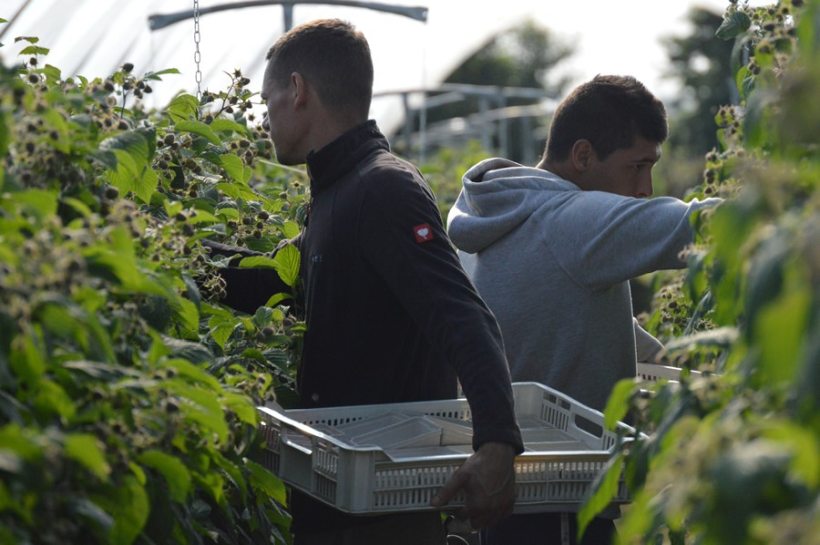
Farmers and growers are 'seriously concerned' about how they will get the workforce they need to operate, the NFU has warned as a review into labour shortages launches.
The union has responded to Defra’s launch of an independent review into labour shortages within the food supply chain, highlighting the importance of immediate action to alleviate workforce pressures.
Industry veteran John Shropshire, ex CEO of major horticulture producer G’s Fresh Group, was announced as chair of the review, as the government admitted the sector cannot rely on migrant labour.
Labour shortages are affecting countries around the world, but the UK food and farming sector - heavily reliant on migrant labour - warns that it is suffering as a consequence of Brexit and the pandemic.
The government has already boosted the number of visas available through the seasonal workers route to 40,000, but the sector says this is not enough.
The review will consider the challenges facing food and farming businesses to recruit and retain the labour they require and will provide recommendations to consider.
NFU Deputy President Tom Bradshaw welcomed the move, adding that the union had long highlighted the impacts of workforce pressures across the food and farming sector.
He said: "We hope it will act as a catalyst for government to take action to ensure the food supply chain has the workforce it needs to continue producing, picking, packing and processing high quality, affordable and sustainable food for the nation.
“While there must be a focus on long term workforce requirements and business resilience in the future, including things like boosting domestic recruitment and automation, farmers are seriously concerned about how they will get the workforce they need right now."
Another review recently brought together experts across horticulture and technology to understand what would be required to accelerate the development of automation technologies.
Recommendations included establishing a consortium that brings together government and industry to drive adoption of proven technologies.
Another said government must adopt a mission-led approach to fast-track new tech, and the horticulture sector should establish working groups to share novel harvest practices and consider how best to make the industry more attractive for workers.
But Mr Bradshaw said the new review into labour shortages "cannot overlook the immediate and pressing issues the food supply chain is facing as we speak".
“With this review taking place imminently, it’s important that the government no longer delays commissioning the Migration Advisory Committee’s review of the Shortage Occupation List," he said.
"This will look at jobs where there is a shortage of suitable workers in the UK and where it is sensible to fill those shortages with migrant workers, so will play a big role in determining job shortages across the food supply chain."
The NFU also urged Defra to expand the review to include the British ornamental plant sector, which contributes £1.4 billion to the UK economy.
Mr Bradshaw said: "It is currently not included which means it could face significant waste and financial losses due to workforce shortages, thereby reducing its current positive contribution to the country overall.”
